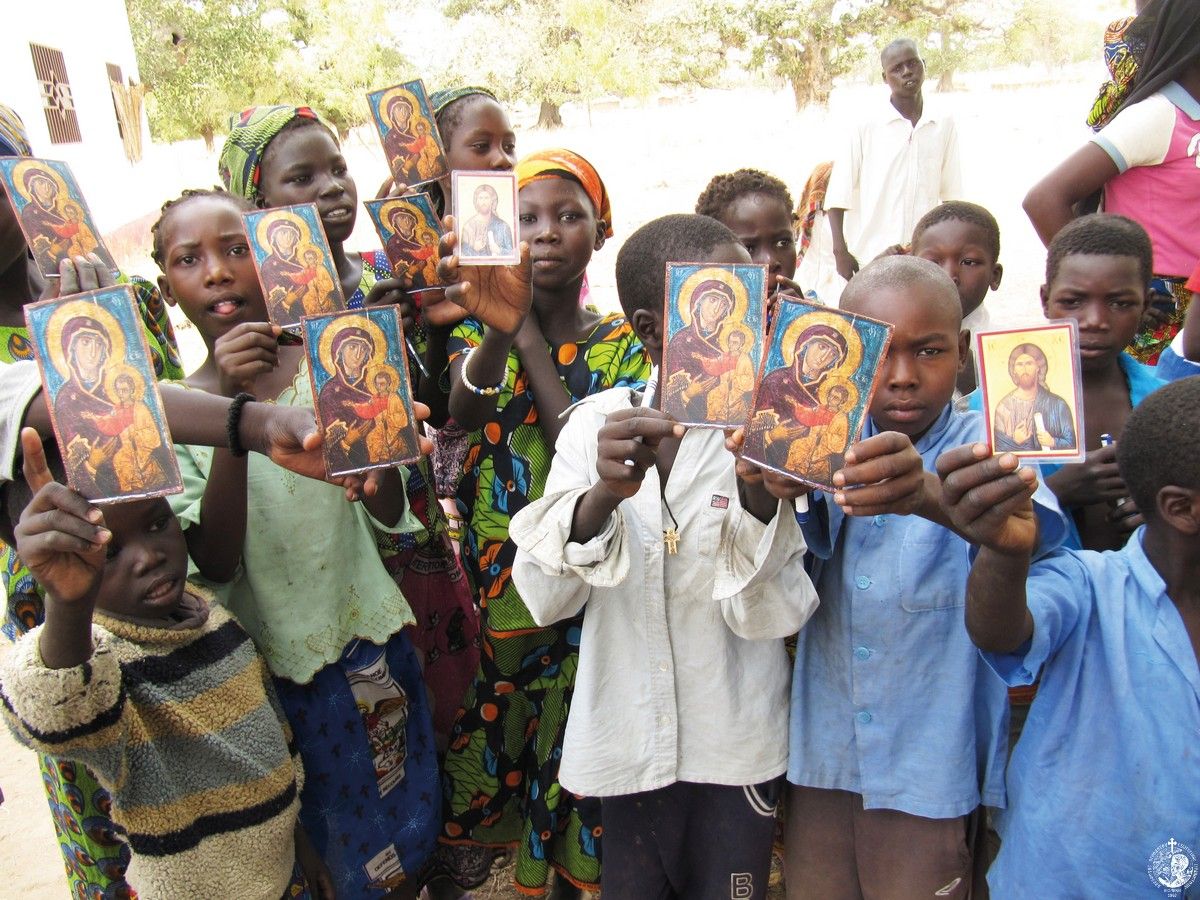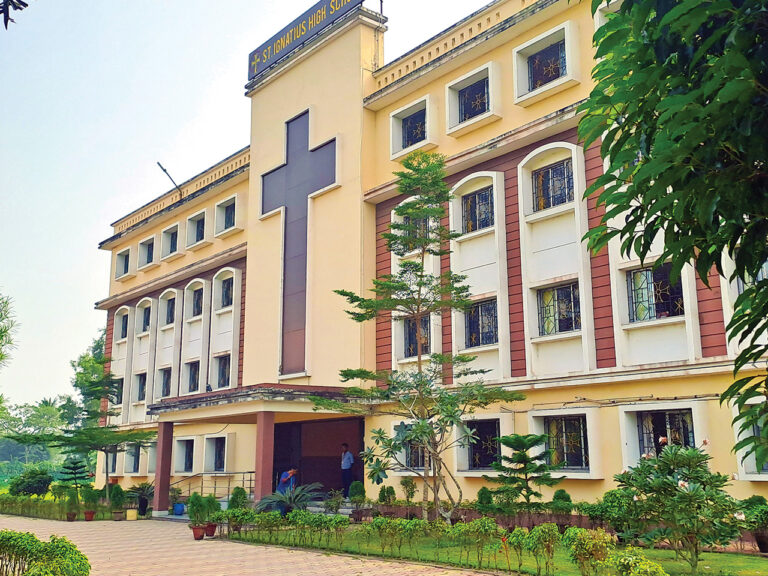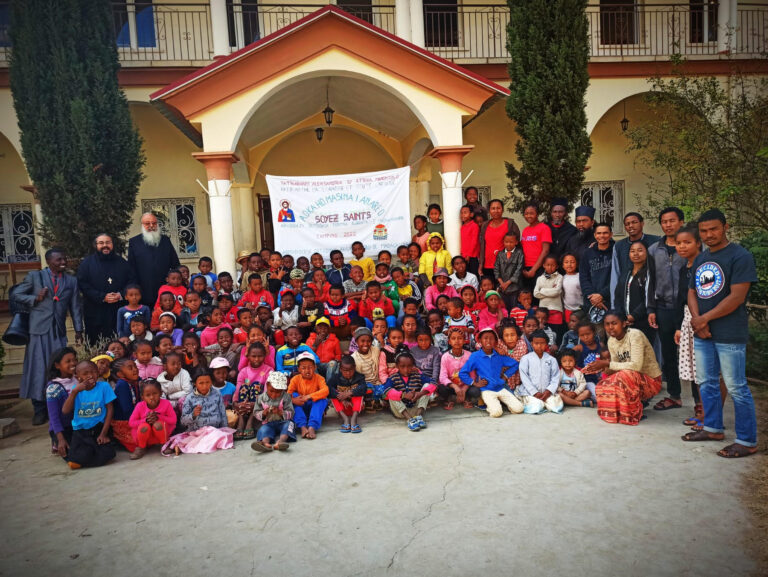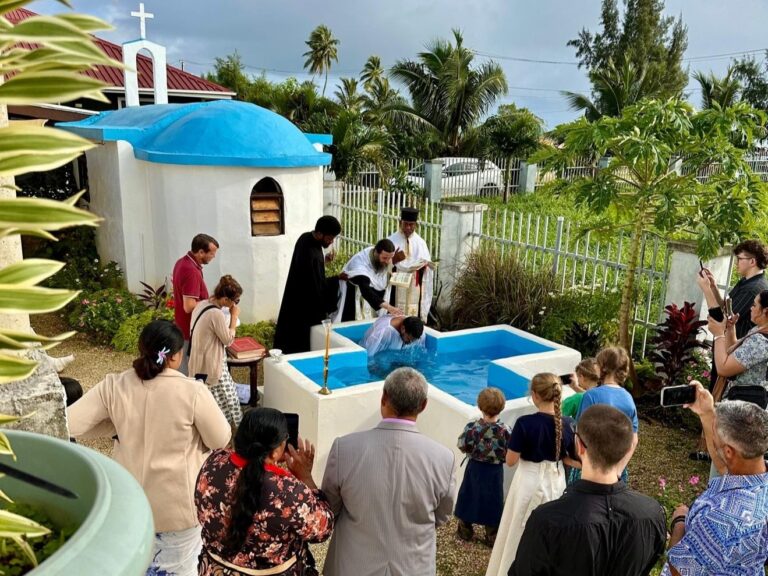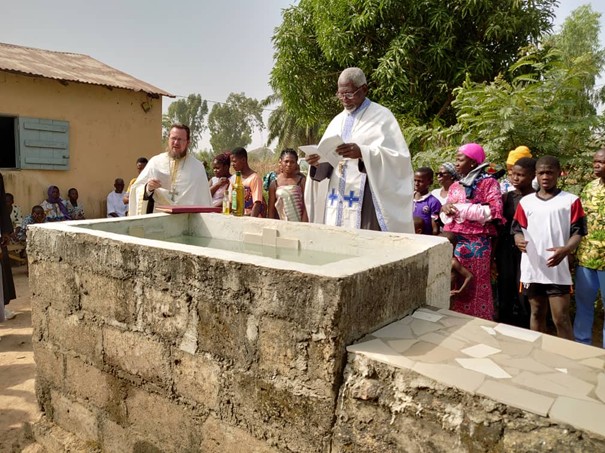Talking about Christ in Africa
“You who have gone on, you have always made disciples of the nations…”
At the end of John’s Gospel there is a clarification for the recipients of the epistle-evangelist: “…and there are also many other things which Jesus did, which, if they be written in him, are not for the world to contain the books that are written. Amen.” (John 21:25). Which in a simple translation is rendered as follows: “…there are also many other things which Jesus did, which, if they were written every one, I think, the world would not contain the books that would be written. Amen.” Many will think that on this point the Evangelist exaggerates… But is this an exaggeration? According to the Orthodox tradition and the decisions of the Ecumenical Councils, the Gospel is inspired from all sides. The Gospels are a record of certain points of the oral tradition of the Apostles to the newly established (then) Church Communities and are written according to the indications of the Holy Spirit according to the words of the Lord: “…these things I have told you before me, and the Holy Spirit, the Holy Spirit, who is the Father in my name, will teach you all things, and remind you of all that I have said to you” (John 14:25-27). Moreover, in the four Gospels there are also many seemingly “insignificant” testimonies to a multitude of miraculous cures.
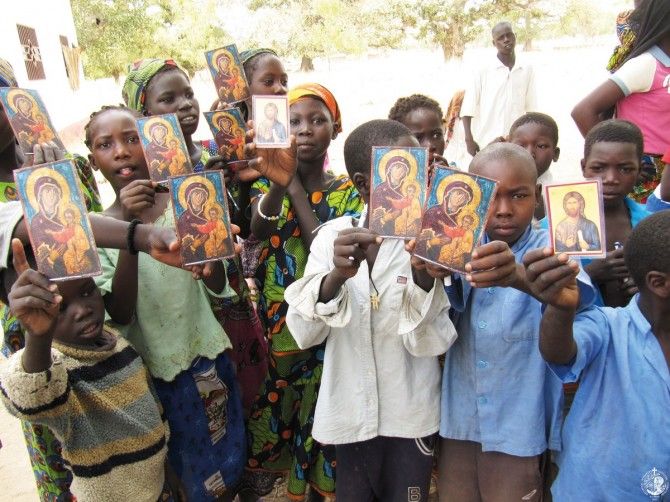
Because, therefore, man is prone to forgetfulness, the Father sends the Comforter, who reminds us of what Christ accomplished “in works and words” during his earthly life and actions. Of course, this work of the Holy Spirit of the “remembrance” of the Lord’s commandments did not stop in the Apostolic age, but continued throughout the centuries through the daily sanctification of the members of the ecclesiastical communities and the elevation of holy figures from both tribes and from all social classes and the entire ecclesiastical hierarchy. Thus, we have Apostles, Apostles, Apostles, Martyrs, Confessors, Confessors, Osius, Hierarchs, Righteous and Pious. We have holy kings, generals, soldiers, fishermen, slaves and freedmen, prostitute saints, prostitute saints, stylists, dendrites and saints who are saints for Christ, suicide saints and saints… All these classes essentially by their lives and the special way they were sanctified “imitate” -remember- by their works and words one and the same thing: “the face of Jesus Christ”. We would also say that through their lives, their example and often their teaching, they bring back to the memory of the ecclesial communities – and the Church as a whole – many of the things that Jesus Christ did that were not written down and were so many that if each of them were written down individually, the world would not fit into the written books… This is also the special value of the study and promotion of the synaxis of the saints in the Orthodox Church and the honour of the saints in general. At the same time, this is also the struggle of the contemporary Orthodox missionary work in the far corners of the world, to establish ecclesiastical communities in societies that are unprecedented and often primitive and to create the “memory of Christ” which will be cultivated through the constant “remembrance of Him” and will create the foundations that will bring to the memory of the ecclesiastical communities what Christ said and did and which were not recorded “in the flesh”, that is, the daily sanctification…
Thus we understand that mission is a basic condition for the existence of every Church, and woe to the Church that has severed its ties with mission; it is like a tree that cuts its own roots…
It must be understood that the efforts of all Missionaries are efforts of the One, Holy, Catholic and Apostolic Church and not personal efforts to obtain the title of Missionary. I am not here because I like the unknown and inconsolable nature of the place, the adventurous life and activity… I am here to continue and participate in the legacy of the Apostles Mark and Luke… And it is really difficult for me to speak of Christ after two thousand years, but I think of the Apostles who spoke of the Prophets of Israel and their prophecies, even though centuries had passed since then and in their time… “Brethren, God has fulfilled the promise which He made through the works of the Prophets… and sent forth His Son…” I think of the same Christ who interpreted the prophecies in the Synagogues and led the people of Israel and His disciples to see, touch, live, participate in the life and death and resurrection of the fulfillment of the prophecies… And I say, “This year’s Word is not mine and I have no right to take it away from anyone”, and I speak of Christ for the hope of the Resurrection in a world that is daily kneaded in the dead ends of a cheap and unjust death that covers vast expanses of beings destined to live eternity…
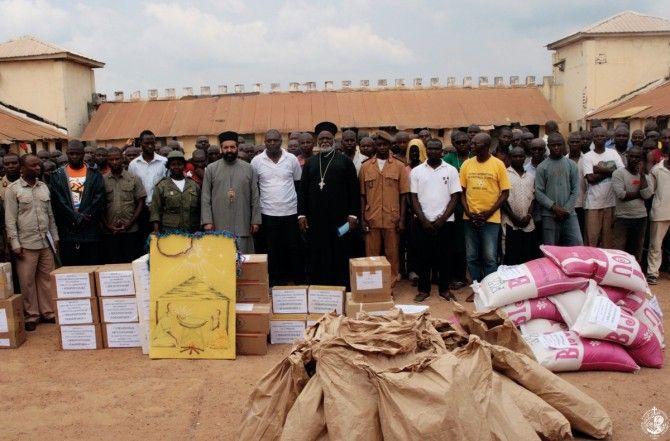
I believe that, if some of the ancient tragedians were resurrected today and had the information we all have about Africa, they would constantly write new tragedies about it, in order to stigmatize and cure our deadly indifference! Surely, a world like ours that does not have the education of tragedy to cultivate it, that is, the tendency “to imitate the great and perfect act”, could it be cultivated in this way today? It is a question that should be discussed very much, because the Church presents essentially a tragedy at every Eucharistic Synaxis: “Christ incarnate, suffering, suffering, dying, hesitating, ascending and coming again with glory and judging the world…”. But how many truly live through tragedy this eschatological dimension of the Eucharistic Convocation in every Mass? And how many accept this dimension of the Church as taught by the Church herself? This is precisely the distance of those who consider the Mission as a “utopia and a finished matter” from the reality of the Church, which they serve as a perhaps emotional cover; and the distance from the Mission itself, which they have also neither lived nor practiced. It should be felt in every way that it is a completely different situation to speak and to make known:
- to people who have never heard about Christ in their lives after 2000 years and to sow the invitation of faith in Him,
- It is one thing to talk about Christ to people who have a minimal knowledge of Him and something completely different,
- trying to arouse interest in the church lifestyle in people who carry in their DNA the memory of the experience of the church lifestyle…
Let us assume that missionaries are concerned with the first and second reality and those not concerned with the mission are concerned with the second and even more so with the third reality. The discourse of missionaries should not simply report historical facts, but should have this quality and this dynamic “to incarnate, to give birth” to Christ in people’s beings… and for men to follow the earthly life of the Lord and for their faith to be certified “through the subsequent signs” of Christ’s presence in their lives and for “memory” to be created, which will be reborn through the Mystery of Remembrance. The word of the Pastors in the Ancient Churches works on the basis that “the memory” already exists… People already have, desire, cultivate a relationship with Christ even when they are seemingly indifferent to Him… This essential difference between the two functions of the One and Only Ecclesiastical Word clearly describes the difficulties and problems of the missionaries, but also the necessity of the existence of the missionary word also in the modern reality of the Ancient Churches, which is characterized by anything but vitality… Perhaps my speech sounds harsh and severely critical… but I think that our self-criticism must be reduced daily to some other theological levels that will help us to improve our position as Pastors of the Church, and this can only be done through the continuous dissection of our shortcomings…
The embrace of faith to all the brethren of the least brethren of our Lord in Africa…
+ Gregory of Cameroon

